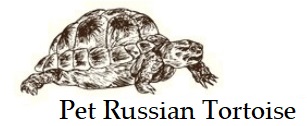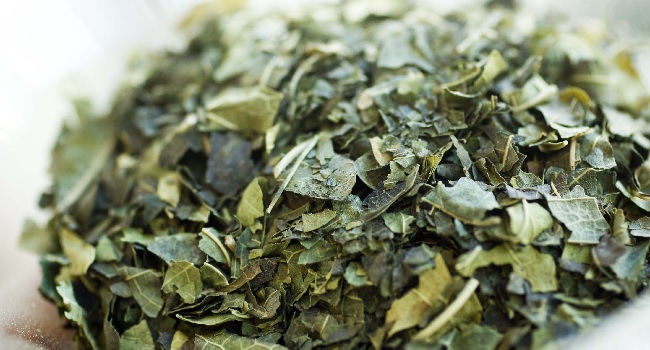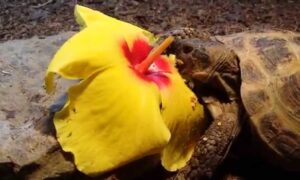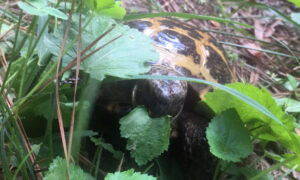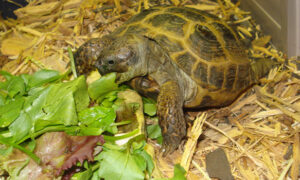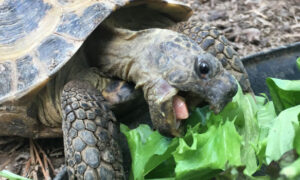During the spring and summer months, fresh weeds and leaves are likely plentiful in your yard and outdoor tortoise pen. Or maybe you grow your own weeds and leaves in a raise garden. But during the colder months of the year, you may find it harder to find fresh weeds for your Russian tortoise. So, look for dried weeds and leaves.
You can collect fresh throughout the year and dry them yourself, or you can buy organic and human-grade dried leaves for your tortoise. Or to save money, maybe you want to do both – dry what you have growing in your yard and buy what you want to offer but can’t grow.
Dried weeds and leaves have a shelf life of up to two years when stored in a dry, dark place in a resealable bag. This means they’ll last several seasons, even through the fall and winter months when weeds and leaves aren’t as plentiful.
Some of the more popular dried leaves include the below.
Alfalfa Leaves
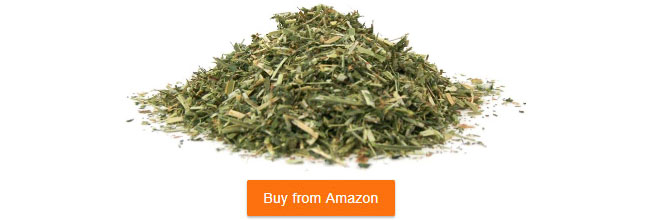
Alfalfa is high in protein, which is why you want to limit it in your tortoise’s diet. But, on the other hand, vegetable proteins can be safe and healthy for tortoises. Offer alfalfa leaves once a week, but no more. Alfalfa is rich in vitamin K, vitamin C, copper, manganese and trace vitamin D3. Some sources say that you should never feed a tortoise alfalfa, but other sources say that you can offer it in limited amounts. Use your best judgement and comfort when feeding your Russian tortoise.
Dandelion Leaves
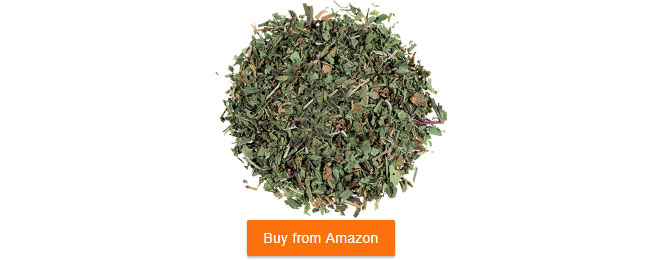
Dandelion leaves are a moderate feed due to the oxalate content, but Russian tortoises love to eat it. Dandelion may have high oxalates, but it is also rich in calcium and vitamin K. Only offer a pinch of dried dandelion leaves one to two times a week with other greens.
Moringa
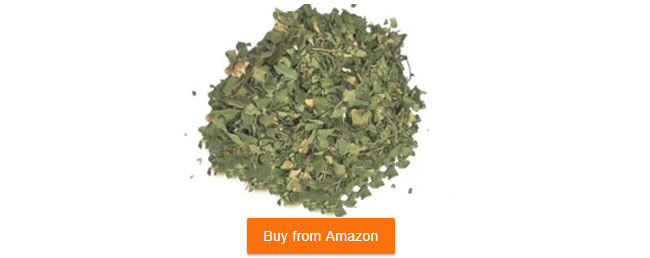
Moringa is rich in vitamin A, vitamin C, potassium, calcium, iron and protein. It contains over 90 different nutrients and 46 antioxidants. Offer moringa leaves a few times a week.
Plantain
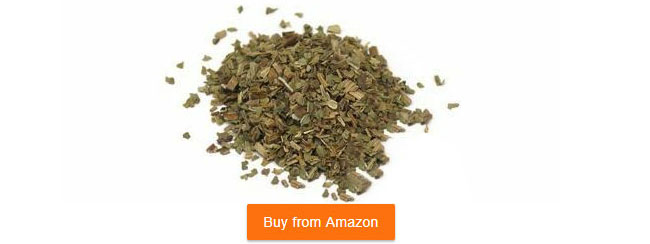
Plantain major is a good source of vitamin C, calcium and potassium. Whether the plantain is freshly picked or dried leaves, it is a great food item for your Russian tortoise. Sprinkle on greens or add it to tortoise pellets, like Mazuri or Zoo Med Grassland.
Red Raspberry Leaves
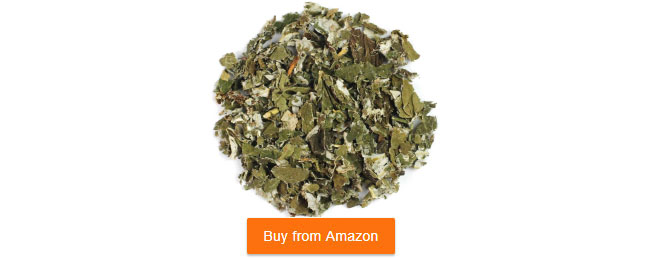
Raspberry leaves are rich in vitamins and minerals, like B vitamins, vitamin C, potassium, magnesium, iron and phosphorus. Feed raspberry leaves sparingly because of the tannin content. Offer it once a week, no more than twice.
Spearmint Leaves
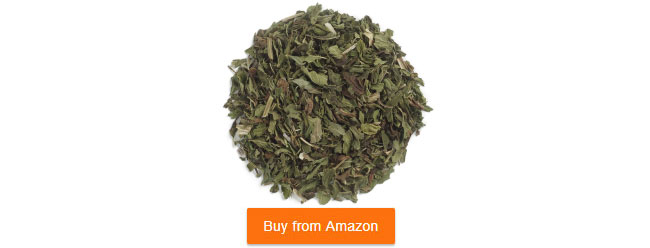
In most cases, tortoises don’t like mint or spearmint because of the strong smell. They will often avoid it. But it is rich in vitamin A, vitamin C, vitamin B6, calcium, iron, manganese, magnesium and other nutrients. Offer in small quantities with other foods so as not to overpower your tortoise’s senses.
How to Feed Dried Leaves to Tortoises
When feeding dried leaves to tortoises, offer them as is or soak them to moisten them. To moisten dried weeds and leaves, place it in a bowl of water and let it soak for about 30 minutes.
To serve, add about a pinch of dried leaves on top of your tortoise’s food. Add dried weeds to fresh greens, Mazuri or Zoo Med Grassland pellets.
